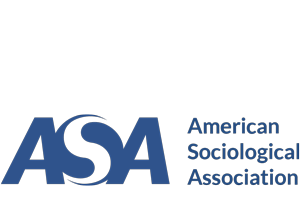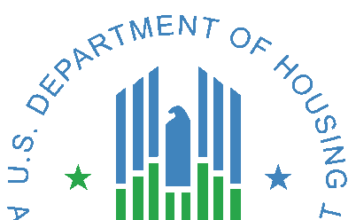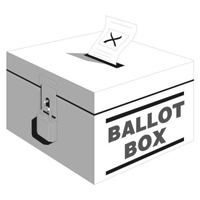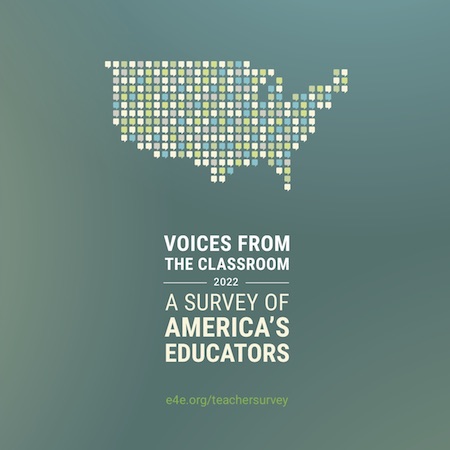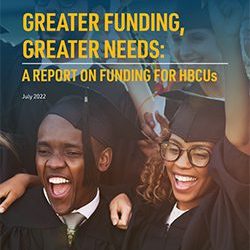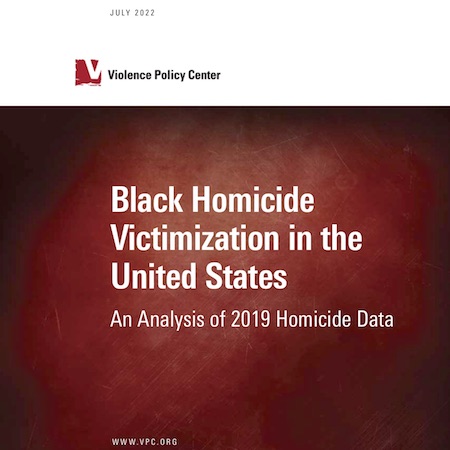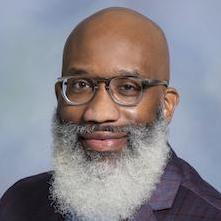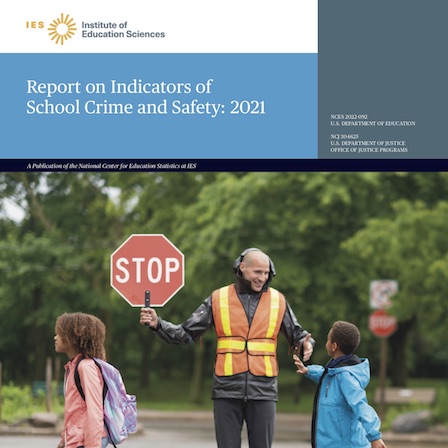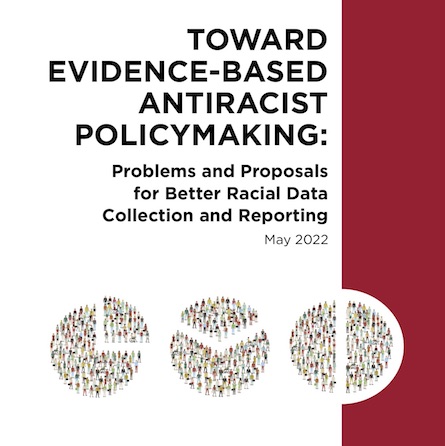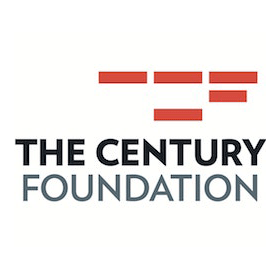Study Finds Black-Owned Restaurants Had a Larger Drop in Business During the Pandemic
The authors speculate that "the costs of staying open and continuing to offer dine-in services during the first few months, the loss of employees due to virus infection and the depletion of financial reserves, made the Black-owned restaurants less competitive than those that had better flexibility in reacting to the pandemic."
How Higher Education Contributes to Occupational Segregation by Race in the United States
In 2017, only 10 percent of Black students, who originally declared a computer sciences field of study graduated with a computer sciences degree. In contrast, nearly 29 percent of White students whose original field of study was computer sciences graduated with a computer sciences degree.
Huge Dataset of Voting Records Show Significant Racial Gap in Turnout Rates
Researchers at the University of Virginia and Brigham Young University analyzed 400 million voter records and found that minority citizens, young people, and those who support the Democratic Party are much less likely to vote than Whites, older citizens, and Republican Party supporters. Moreover, those in the former groups are also more likely to live in areas where their neighbors are less likely to vote.
The Undergraduate Institutions That Produce the Most Black Doctoral Degree Recipients
From 2010 to 2020, nearly 22,000 Blacks earned doctorates from U.S. colleges and universities. The new NSF report finds that Howard University in Washington, D.C., produced the most undergraduates that went on to earn a doctoral degree during the period with a total of 403. More than one quarter of all Blacks who went on to earn doctorates were graduates of HBCUs.
The Burden of Student Loan Debt Impacts the Mental Health of Many African Americans
Black students are more likely to borrow, borrow more, and are more likely to struggle with repayment than their White peers. Twelve years after starting college, the typical Black borrower owes 13 percent more than they originally borrowed and has paid down none of their balance, while the typical White borrower has successfully paid down 35 percent of their original loan balance.
Exposure to Lead-Based Paint Is Still Impacting the Racial Gap in Educational Progress
Lead-based paint was banned in the United States in 1978. But people who live in the nation's older housing stock - primarily those in impoverished urban areas still are at high risk of exposure to lead-based paint. Studies have shown that exposure to lead can have a significant negative impact on the cognitive abilities of young children.
Why HBCU Medical Schools May Be Better for Aspiring Black Physicians
A new study by researchers at Harvard Medical School, the University of Central Arkansas, and Northwestern University, finds that Black medical students attending historically Black medical schools report a greater sense of belonging and greater confidence in their scholastic abilities than those in predominantly White medical schools.
New Report Examines The Disparate Impact of COVID-19 on Student Loan Debt for Blacks
A new study by the Center for Responsible Lending finds that women carry about two-thirds of the $1.7 trillion of federal student loan debt and Black women are more than twice as likely as White men to owe more than $50,000 in undergraduate student loan debt.
Study Finds Little Progress for African Americans in Academic Radiology
In academic radiology in 2019, Blacks were 3 percent of the assistant professors and 2 percent of the associate professors and full professors. The proportion of Black or African American department chairs was 5 percent in 2019. These percentages have not changed significantly since 2010.
Research Shows Racial Disparities in Funding Rates by the National Science Foundation
The research found that during the years analyzed between 22 percent and 34 percent of all proposals received funding. But they discovered that the funding rate for White scientists was 8 percent above the average and the funding rate for Black researchers was 8 percent below the average.
Survey Finds Differing Views on Best Ways of Recruiting and Retaining Teachers of Color
More than 50 percent of the students in public school classrooms across the United States identify as people of color, while only 20 percent of their teachers do. The gap between the two has grown since the 1980s. A new report shows how recruitment and retaining of teachers of color may be enhanced.
Study Finds Teachers’ Biases and Fears Limit Needed Discussions About Race in the Classroom
Analyzing data from two large surveys, each including responses from more than 1,000 K-12 teachers, researchers at the Unversity of Massachusetts found that teachers’ implicit racial biases and their explicit fears of being perceived as racist both independently contributed to lower intentions to talk about race with their students.
New UNCF Report Finds That HBCUs Stlll Need Additional Funding Support
A new report from the United Negro College Fund (UNCF) finds that despite the influx from the past two years of federal government funding and private donations to the nation's historically Black colleges and universities, it has not been enough to make up for decades of neglect.
Racial Differences in Attrition Rates at Medical Schools in the United States
The study found that students who were from an underrepresented racial or ethnic group, and also from a low-income family who lived in an underresourced neighborhood had a dropout rate that was nearly four times the rate of White students who were not from a low-income family and did not live in an underresourced neighborhood.
Report Examines Racial Differences in Homicide Victimization in the United States
A new report from the Violence Policy Center finds that although African Americans make up 14 percent of the U.S. population, they made up 52 percent of all homicide victims in 2019. The four states with the highest Black homicide rates were Missouri, Illinois, Indiana, and Wisconsin.
McKinsey & Company Study Finds Snail-Like Progress in Higher Education Diversity
The company's analysis finds that with current rates of change it would take about 70 years for all not-for-profit institutions to reflect underrepresented students fully in their incoming student population. For faculty, it would take more than 1,000 years at the current pace to reach parity for all not-for-profit institutions.
University of Pittsburgh Study Detected an Increase in Online Racism Directed at Black Youth
A new study by scholars at the University of Pittsburgh found half of all Black adolescents were faced with online racism at least once in 2020. These increases in online racial discrimination predicted worse same- and next-day mental health.
How State Lotteries Prey on Low-Income African Americans
An investigation of state lotteries by the Howard Center for Investigative Journalism at the University of Maryland found that high school dropouts spent four times more per year on the lottery than college graduates. Black people spent, on average, nearly five times as much as White people.
New GAO Report Finds Widespread Racial Segregation in the Nation’s Public Schools
The Government Accountability Office study found that 23 percent of all Black students attended schools where 75 percent or more of the student body was Black. But 45 percent of all White students attended schools where at least 75 percent of the student body was White.
The Scourge of Inflation Hits Black Families at an Even Higher Rate
New research from the University of California San Diego’s School of Global Policy and Strategy finds that Black families experience slightly higher inflation and 13 percent more volatile inflation, which impacts prices on groceries and other household essentials.
New Study Provides Evidence on the Effect of Race on Criminal Sentencing
The authors found that "respondents who view persistent racial inequalities as the product of both past and ongoing institutional factors prescribed lengthier sentences for White defendants; those who discount these explanations prescribed lengthier sentences for Black defendants.
Young White Adults Increasingly Believe That Anti-Black Racism Is a Thing of the Past
A new study led by Tony Brown, a professor of sociology at Rice University in Houston, Texas, finds a rise in racial apathy — in other words, not caring about racial inequality — among young White adults.
How the Pandemic Impacted Black Enrollments in California Community Colleges
A new study by researchers at the University of California, Santa Cruz which is a working paper of Stanford University's Institute for Economic Policy Research, finds that although all racial and ethnic groups experienced large decreases in enrollment during the pandemic, Black students experienced the largest effects.
University of Maryland Study Finds Wide Political Divide on Views of Racial Discrmination
The study found that less than half of all American believe that there is more discrimination direct against African Americans than was the case five years ago. Some 40 percent of all respondents stated that they believed there was more discrimination directed against Whites than was the case five years ago
How Educational Attainment Impacted COVID-19 Mortality Rates Among African Americans
The research team found 68 percent of COVID-19 deaths in the first year of the pandemic were low socioeconomic positions adults (those with no education beyond high school) employed in labor, service, and retail jobs that required on-site attendance and prolonged close contact with others.
Does Racial Segregation in Schools Contribute to Disparities in Heart Health?
A new study finds that the racial segregation of schools may impact cardiovascular health later in life. The research team notes that school segregation may increase stress, constrain socioeconomic opportunities, and negatively alter health behaviors.
Academic Study Finds Blacks Have Less Access to Quality Care for Strokes
Residents in predominantly Black communities are more likely than those in predominantly White communities to live near a hospital with a certified stroke center. However, a new study shows that when residents in these Black communities have a stroke, they are at greater risk of receiving care at a less-resourced hospital.
Department of Education’s Latest Data on Campus Hate Crimes
In 2019, of the more than 27,000 criminal incidents that occurred on the campuses of postsecondary institutions and were reported to police or security agencies, 757 incidents were classified as hate crimes. Of these, 400 were motivated by race or ethnicity.
Academic Study Finds Significant Racial Bias in Artificial Intelligence Programs
The research, led by Johns Hopkins University, Georgia Institute of Technology, and University of Washington researchers, is believed to be the first to show that robots loaded with an accepted and widely-used model, operate with significant gender and racial biases.
Boston University Study Finds Shortcomings in Federal Data Collection on Race
The Boston University report, “Toward Evidence-Based Antiracist Policymaking: Problems and Proposals for Better Racial Data Collection and Reporting,” emphasizes the need for a robust and standardized system of racial data collection, reporting, and monitoring.
Are School Choice Programs Compatible With the Goal of Racial Integration?
School choice programs are often touted as a means to address systemic inequities in schools, but they largely operate as unregulated “open enrollment” programs. Without regulation, and without an explicit focus on the goal of better-integrated school environments, segregation becomes more pronounced.
HBCUs Provide Other Universities With a Roadmap for Success for Black STEM Students
The HBCU practices that lead to success include establishing a safe and nurturing environment, creating a scientific identity, and instilling self-worth in students.
Blacks Make Up a Small Percentage of MD/Ph.D. Student Matriculants
The researchers found that between 2009 and 2018, the percentage of underrepresented minority matriculants went from 9.8 percent in 2009 to 16.7 percent in 2018. But the majority of that change was led by Latinx/Hispanic populations, with Black and Native American populations experiencing lower increases.
Many African American Families Are Struggling to Pay Back Parent PLUS Loans
In the month they were surveyed, 37 percent of Black parent-borrowers said they expected to be unable to make a partial payment on their student loan bills, compared to 20 percent for all other groups.
Tracking the Gender Gap in Enrollments at HBCUs
For the fall of 2020, when the COVID-19 pandemic greatly impacted enrollments in higher education, women were 64.3 percent of all students at HBCUs, compared to 62.7 percent in 2019, before the pandemic took hold.
Like Other Problems, the Baby Formula Shortage Has a Greater Negative Impact on Blacks
The percentage of White babies who receive all their food from breast milk during their first four months of life is double the percentage for African American babies. This fact alone shows that African American mothers are more dependent on the availability of formula.
